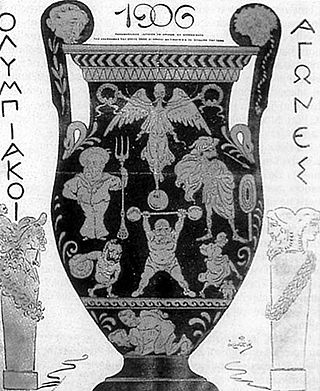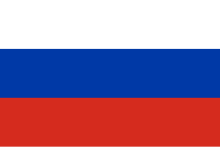
The Summer Olympic Games, also known as the Games of the Olympiad, is a major international multi-sport event normally held once every four years. The inaugural Games took place in 1896 in Athens, Greece, and the most recent was held in 2024 in Paris, France. This was the first international multi-sport event of its kind, organized by the International Olympic Committee (IOC) founded by Pierre de Coubertin. The tradition of awarding medals began in 1904; in each Olympic event, gold medals are awarded for first place, silver medals for second place, and bronze medals for third place. The Winter Olympic Games were created out of the success of the Summer Olympic Games, which are regarded as the largest and most prestigious multi-sport international event in the world.

The 1952 Summer Olympics, officially known as the Games of the XV Olympiad, and commonly known as Helsinki 1952 were an international multi-sport event held from 19 July to 3 August 1952 in Helsinki, Finland.

The 1920 Summer Olympics, officially known as the Games of the VII Olympiad and commonly known as Antwerp 1920, were an international multi-sport event held in 1920 in Antwerp, Belgium.

The 1906 Intercalated Games or 1906 Olympic Games was an international multi-sport event that was celebrated in Athens, Greece. They were at the time considered to be Olympic Games and were referred to as the "Second International Olympic Games in Athens" by the International Olympic Committee (IOC). However, the medals that were distributed to the participants during these games were later not officially recognised by the IOC and are not displayed with the collection of Olympic medals at the Olympic Museum in Lausanne, Switzerland.

The 1912 Summer Olympics, officially known as the Games of the V Olympiad and commonly known as Stockholm 1912, were an international multi-sport event held in Stockholm, Sweden, between 6 July and 22 July 1912. The opening ceremony was held on 6 July.

The 1908 Summer Olympics were an international multi-sport event held in London, England, from 27 April to 31 October 1908. The 1908 Games were originally scheduled to be held in Rome, but were relocated on financial grounds following the violent eruption of Mount Vesuvius in 1906, which claimed over 100 lives; Rome eventually hosted the Games in 1960.

Football at the 1912 Summer Olympics was one of the 102 events at the 1912 Summer Olympics in Stockholm, Sweden. It was the fourth time that football was on the Olympic schedule.

The Union of Soviet Socialist Republics (USSR) first participated at the Olympic Games in 1952, and competed at the Summer and Winter Games on 18 occasions subsequently. At six of its nine appearances at the Summer Olympic Games, the Soviet team ranked first in the total number of gold medals won, second three times, and became the biggest contender to the United States' domination in the Summer Games. Similarly, the team was ranked first in the gold medal count seven times and second twice in its nine appearances at the Winter Olympic Games. The Soviet Union's success might be attributed to a heavy state investment in sports to fulfill its political objectives on an international stage.

The United States of America has sent athletes to every celebration of the modern Summer Olympic Games with the exception of the 1980 Summer Olympics, during which it led a boycott in protest of the Soviet invasion of Afghanistan. The United States Olympic & Paralympic Committee (USOPC) is the National Olympic Committee for the United States.

Hungary first participated at the Olympic Games at the inaugural 1896 Games, and has sent athletes to compete in most Summer Olympic Games and every Winter Olympic Games since then. The nation was not invited to the 1920 Games for its role in World War I, and was part of the Soviet-led boycott of the 1984 Summer Olympics.

Athletes from Germany (GER) have appeared in 27 of the 30 Summer Olympic Games, having competed in all Games except those of 1920, 1924 and 1948, when they were not permitted to do so. Germany has hosted the Summer Olympic Games twice; the 1936 Games in Berlin, and the 1972 Games in Munich.

The modern Olympic Games were founded by French historian Pierre de Coubertin. France has competed in every edition, with the possible exception of the 1904 Games.

The all-time medal table for all Olympic Games from 1896 to 2024, including Summer Olympic Games, Winter Olympic Games, and a combined total of both, is tabulated below. These Olympic medal counts do not include the 1906 Intercalated Games which are no longer recognized by the International Olympic Committee (IOC) as official Games. The IOC itself does not publish all-time tables, and publishes unofficial tables only per single Games. This table was thus compiled by adding up single entries from the IOC database.

Russia, referred to by its formal name; the Russian Federation, by the International Olympic Committee, has competed at the modern Olympic Games on many occasions, but as different nations in its history. As the Russian Empire, the nation first competed at the 1900 Games, and returned again in 1908 and 1912. After the Russian revolution in 1917, and the subsequent establishment of the Soviet Union in 1922, it would be thirty years until Russian athletes once again competed at the Olympics, as the Soviet Union at the 1952 Summer Olympics. After the dissolution of the Soviet Union in 1991, Russia competed as part of the Unified Team in 1992, and finally returned once again as Russia at the 1994 Winter Olympics.

The Russian Empire (Russia) competed at the 1912 Summer Olympics in Stockholm, Sweden. 159 competitors took part in 62 events in 15 sports.

Finland competed at the 1912 Summer Olympics in Stockholm, Sweden. The Grand Duchy of Finland was ruled by the Russian Empire at the time, but Finland's results are kept separate from those of Russia due to Finland's special status. In the Opening Ceremony Finland's team paraded under the national insignia flag of a Swedish-speaking female gymnastics club in Helsinki. 164 competitors, 162 men and 2 women, took part in 49 events in 10 sports.

Finland first participated at the Olympic Games in 1908 and has sent athletes to compete in every Summer Olympic Games and every Winter Olympic Games since then. Finland was also the host nation for the 1952 Summer Olympics in Helsinki. Finnish athletes have won a total of 305 medals at the Summer Games, mostly in athletics and wrestling. Finland has also won 175 medals at the Winter Games, mostly in nordic skiing events.

The men's coxed pair competition at the 1952 Summer Olympics took place at Meilahti, Finland. It was held from 20 to 23 July. There were 15 boats from 15 nations, with each nation limited to a single boat in the event. The event was won by French team Raymond Salles, Gaston Mercier, and coxswain Bernard Malivoire; it was the nation's first victory in the event. Germany, which had won the event in 1936 but had been excluded from the 1948 Games after World War II, took silver. Sweden, the defending champions, had an all-new crew of Svend Ove Pedersen, Poul Svendsen, and cox Jørgen Frantzen; they took bronze.

The men's eight competition at the 1952 Summer Olympics took place at Meilahti, Finland. It was held from 20 to 23 July. There were 14 boats from 14 nations, with each nation limited to a single boat in the event. The event was won by the United States, the nation's seventh consecutive and ninth overall gold medal in the men's eight; the Americans had won every time they competed. The Soviet Union took silver in its Olympics debut; Australia's bronze was its first medal in the men's eight.
















